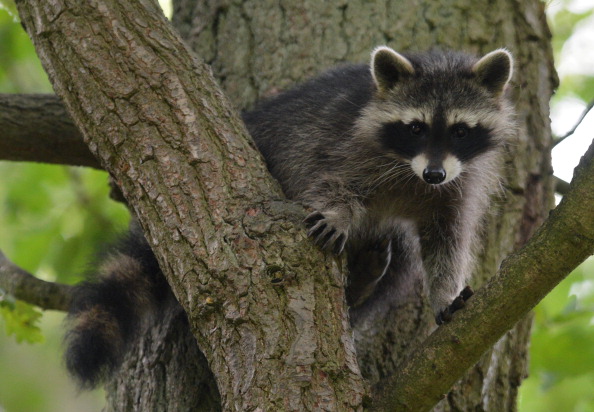Residents in the West End of Vancouver say they are very concerned about a growing number of aggressive raccoon attacks and something needs to be done before it is too late.

One resident, Keith Cordell-Robinson, has been attacked four times since last December.
Now others say they are scared to go outside and walk their dogs because the raccoons are not scared to come up to people and small animals and attack them.
“This is not a situation where this is just disruptive, you shoo them away and life is good,” he adds. “They are brazen, they’re not even afraid anymore.”
Cordell-Robinson says he has been bitten by a raccoon that was trying to attack his dog, he has had to go to hospital twice, and he is concerned a small child is going to get seriously hurt.

Get breaking National news
“My god what if some child was walking ahead of their parents,” he asks.
- Police raid Vancouver home of pro-Palestinian activist facing hate crime probe
- B.C. colleges feeling the pinch after feds slash international student visas
- B.C. paramedics raise concern about new ambulance policy, especially in rural areas
- Sexually assaulted VPD officer targeted by colleague in derogatory group chats
Ponting says he knows there have been more than 10 interactions between humans and raccoons in the past year. Cordell-Robinson now carries bear spray when he walks his dog, and says an elderly woman in the area is so scared to go outside with her dog that she is training it to urinate on paper so she doesn’t have to go out with it.
“They’re not cute, they’re terrifying,” says Cordell-Robinson.
These interactions have been going on for some time, but residents say they feel the situation is getting worse and they want something done. He thinks tourists are still feeding them and that is adding to their brazen behaviour.
According to the BC SPCA, raccoons are not dangerous to people, but they can lose their fear of people and become aggressive towards food or pets. They say “if a raccoon approaches you: yell, stamp your feet, clap your hands and make noise to scare the raccoon away.”
But Ponting and Cordell-Robinson say that is not going to be enough to remedy this situation.
“You cannot clap your hands and have a raccoon walk away when it’s attacking you,” says Cordell-Robinson.
Randy Celinski, president of AAA Wildlife Control says these interactions sound like isolated incidents. “They are not aggressive animals by nature,” he says. “There could be a possible conflict in food source or shelter.”
Residents say there should be a program in place to trap the animals and relocate them.
But the BC SPCA says that is not an option. “Trapping is inhumane, ineffective and restricted by regional wildlife regulations,” they say on their website. “Even if you use a live trap, relocating a raccoon to another location is usually a death-sentence. The raccoon will be in danger because it is likely now in the territory of another raccoon as they are widely distributed. A large percentage of wildlife that is removed from the city generally does not survive and just moves the problem to someone else’s backyard. Raccoons can be injured in traps and even if they were removed, it will only be a matter of time before another raccoon moves in to claim the existing food source and shelter. Poisoning is also inhumane and could also kill other wild animals or pets.”
They want to achieve a balance and say the best way to do this is to keep their food supply restricted by cleaning up the garbage, and preventing access to pet’s food.
Celinski says in his opinion, there should be an investigation done to determine if there are a few sick raccoons in the bunch because this can cause them to be a little more aggressive.
Residents just hope something is done soon.
“I want at least for the public to be mindful,” says Ponting. “These are actual attacks, not hindrances, there are big differences.”








Comments